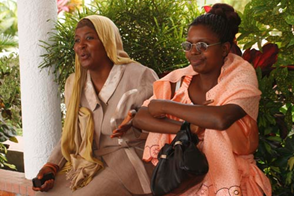Looking back to look forwards – commemorating the Burundi Civil War

Victims of the Burundi Civil War will be commemorated over three days starting tomorrow in Bujumbura.
18 years ago, on the 21st October 1993, the President of Burundi, Melchior Ndadaye, was assassinated. Violence immediately broke out across the country. It turned quickly into a full scale civil war with 300,000 Burundians losing their lives. Clashes were predominately along ethnic lines, causing deep divides between Hutus and Tutsis.
Peace negotiations only started in 1998 in Arusha. But it was not until August 2000 that the peace agreement was signed. This initial peace agreement was followed by more cease-fire agreements between the government and the armed rebel groups.
SPEAK KIRUNDI? Tune in to Radio Isanganiro, Radio Publique Africaine, Radio Bonesha, Radio Rema or Radio Nationale on the 18th October to follow events. Broadcasting will start at 15:00. Both Radio Rema and Radio Nationale can be listened to online.
A society working to overcome the legacy of the civil war
While today, Burundians officially live in peace, understanding and trust between the communities is still being rebuilt.
A period of reflection while highlighting the tasks ahead
Interpeace local partner in Burundi, the Center of Alert and Conflict Prevention (CENAP), is organizing the three day commemoration event.
The events will provide the opportunity for participants to reflect while also raising awareness of the obstacles that still stand in the way of lasting peace 18 years on.
Memories will provide the backdrop for the conference sessions and workshops to follow; testimonies will be shared with participants, recalling the events and their experiences.
‘Justice and truth’ seen as the opportunity to set Burundians firmly on the path to peace
Charles Ndayiziga, Coordinator at CENAP explains: “A lot has changed since 1993. Today, there are national instruments like the National Consultations on transitional justice or the Truth and Reconciliation Committee. These keep to the forefront the state’s obligation to punish violence and prevent renewed outbreaks.”
“The report of the Truth and Reconciliation Committee and the recent announcements of the President of Burundi to implement justice and truth measures is a real opportunity. This can be the turning point to put the country firmly on the path to lasting peace, ” Charles adds. “Much of the discussion will be around the issue of transitional justice.”
From the capital to remote mountains and villages: nobody excluded
Live broadcasts of the debates will be aired by five Burundian radio stations in Kirundi on the 18th October 2011. Together, Radio Isanganiro, Radio Publique Africaine, Radio Bonesha, Radio Rema and Radio Nationale will ensure that no matter how remote an individual may be, they can tune in to the discussions.
At the sessions will be representatives from all levels and sectors of society including: media, religious leaders, academics and teachers, youth group leaders, representatives of the judicial system, members of the military and police and political leaders.
This initiative is a key element of CENAP’s work in Burundi. With one work stream focusing solely on Justice and Reconciliation the event will engage participants so they can play a vital part in the transformation of their society.
